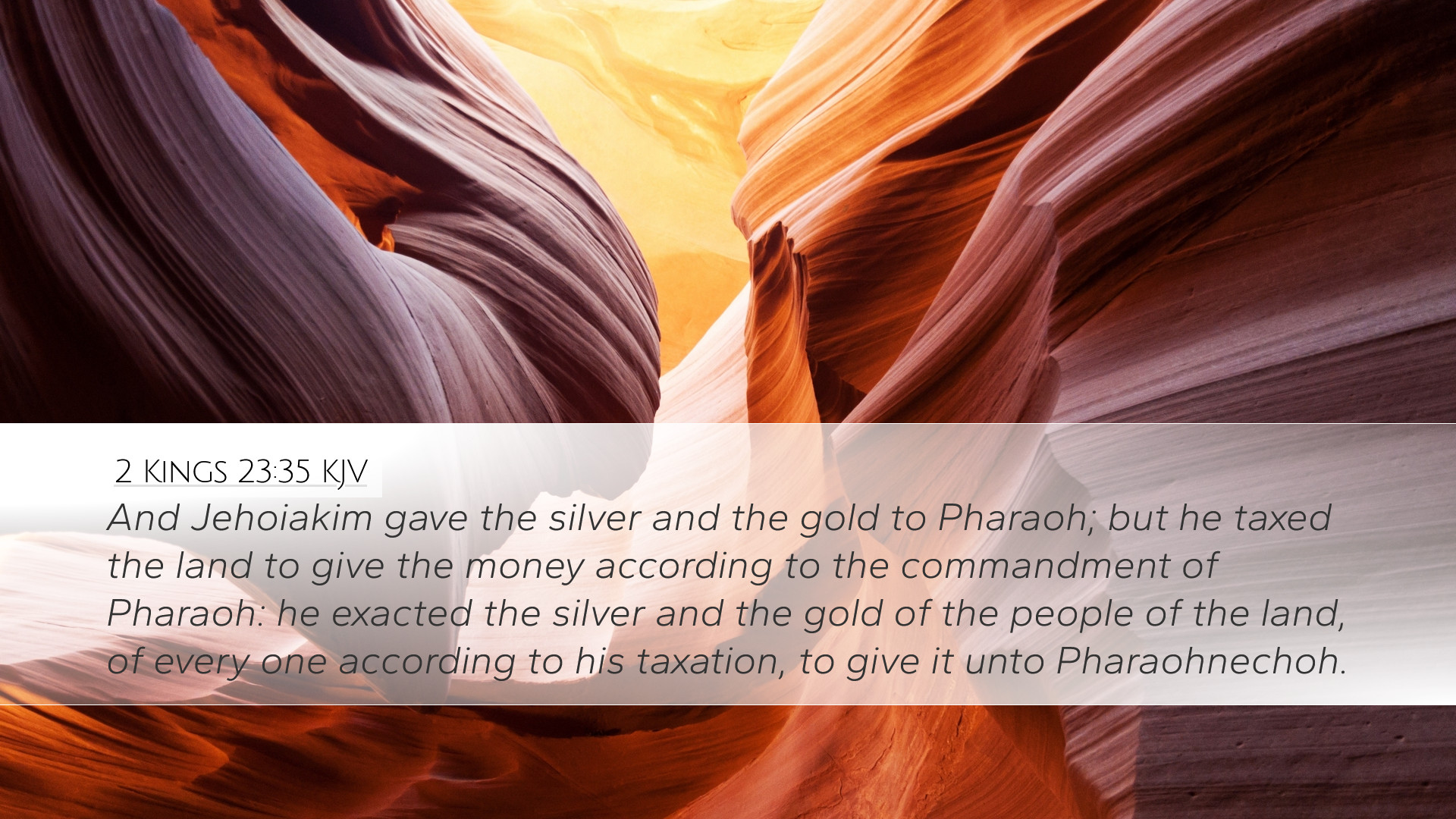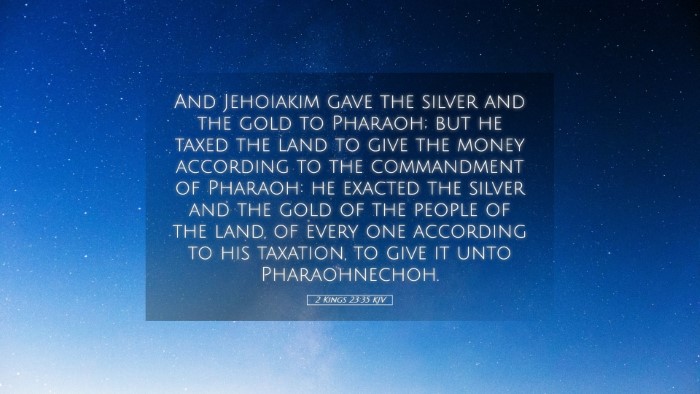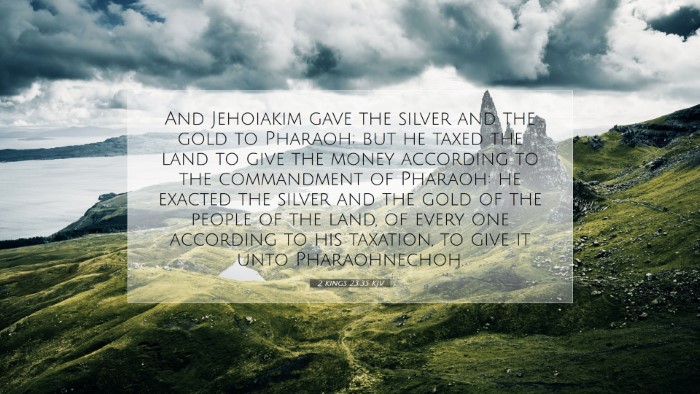Commentary on 2 Kings 23:35
Verse Reference: 2 Kings 23:35 - "And Jehoiakim gave the silver and the gold to Pharaoh; but he taxed the land to give the money according to the commandment of Pharaoh: he exacted the silver and the gold of the people of the land, of every one according to his taxation, to give it unto Pharaoh Necho."
This verse encapsulates a significant moment in the Biblical narrative, revealing the political and economic dynamics of Judah during Jehoiakim's reign. Various public domain commentaries elucidate this complex scenario with depth and relevance for ongoing theological discussions.
Political Context and Historical Background
Matthew Henry expounds on the historical significance, noting that Jehoiakim’s relationship with Pharaoh Necho reflects Judah's precarious position amid greater powers. Henry highlights that Jehoiakim, as a vassal king, was compelled to pay tribute to Egypt following the shift in power dynamics after the battle of Carchemish. This tribute represents both a subjugation to foreign influence and the desperation of Judah as a nation caught in the crossfire of imperial ambitions.
Albert Barnes supplements this view by detailing that Jehoiakim's tribute was not merely a tax but a reflection of his allegiance to Pharaoh. This pecuniary obligation was enhanced by the political atmosphere characterized by Assyrian decline and the rise of Babylonian power. Barnes emphasizes that Jehoiakim’s method of levying taxes was indicative of an unsustainable fiscal policy that ultimately oppressed the people of Judah, mirroring the earlier failures of their ancestors.
Theological Implications
In examining the theological implications, Adam Clarke points out that Jehoiakim’s actions can be viewed as indicative of a broader trend of spiritual and moral decline among the leaders of Judah. By choosing to prioritize political expediency over covenant faithfulness, Jehoiakim strayed from the prophetic paths outlined in Deuteronomy, which emphasized dependence on God over foreign alliances.
Furthermore, Clarke indicates that the taxation system he implemented bore harsh consequences on the populace, which reflects the spiritual malaise that had gripped the nation. This brings to light the essential theme within the scriptures of leadership ethics and the relationship between governance and divine expectation.
Insights on Leadership and Governance
-
Leadership Responsibility:
Henry points out that leaders are called to uphold justice and fairness, yet Jehoiakim's actions led to exploitation rather than equitable governance. This serves as a God-given lesson on the responsibilities that come with authority and the accountability leaders have to serve their people in righteousness.
-
Governance under Foreign Rule:
Barnes explains how surrendering to foreign powers often leads to the erosion of national identity and spiritual integrity. This highlights the temptation faced by leaders to compromise values for material security, a pertinent warning for contemporary leaders navigating complex socio-political landscapes.
The Role of the People
The people of Judah, subjected to Jehoiakim’s taxing policies, emerge as critical actors in this narrative. Clarke emphasizes the plight of the people, burdened by a king whose fidelity veered away from God’s commands. Their experience serves as a sobering reminder that the actions of leaders directly affect the well-being of the populace, laying bare the covenantal responsibilities of both rulers and the ruled.
Practical Applications
For today's pastors, students, and theologians, 2 Kings 23:35 challenges us to consider the implications of governance in light of our faith. It raises essential questions about:
- Faithfulness in Leadership: How can leaders reflect God's justice and mercy in their dealings?
- Fiscal Responsibility: What are the implications of economic policies on vulnerable populations within our communities?
- Spiritual Vigilance: How can the church remain steadfast in faith amidst secular pressures and societal expectations?
In conclusion, 2 Kings 23:35 provides rich material for exploration, reflecting on the intertwining of faith, leadership, and social justice. The insights drawn from commentaries by Henry, Barnes, and Clarke collectively remind us that scripture not only narrates the past but continues to speak powerfully into our present, urging a return to covenantal faithfulness, integrity, and social responsibility in our lives and communities.


